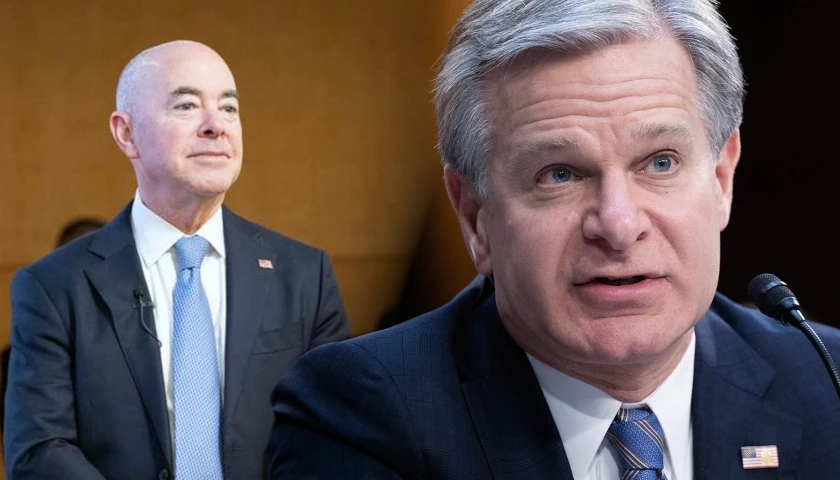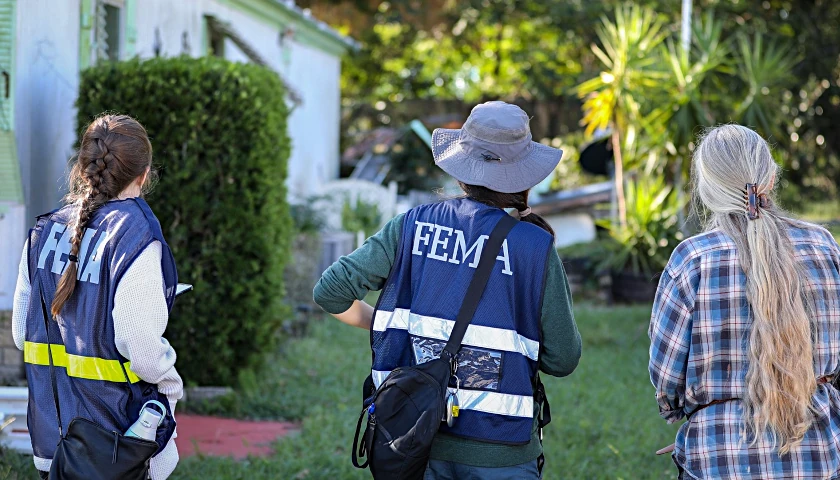by Katelynn Richardson and Kate Anderson
The Supreme Court reinstated limits on Idaho’s near-total abortion ban on Thursday.
Idaho’s trigger law banning nearly all abortions went into effect after the Supreme Court overturned Roe v. Wade in June 2022, prompting the DOJ to file a lawsuit later that year. The DOJ argues that, in certain circumstances, Idaho’s ban conflicts with the Emergency Medical Treatment and Active Labor Act‘s (EMTALA) mandate for doctors to provide emergency “stabilizing care,” which they claim can include abortions.
“The writs of certiorari before judgment are dismissed as improvidently granted, and the stays entered by the Court on January 5, 2024, are vacated,” the order reads.
 The ruling means an injunction on Idaho’s law put in place by a district court will remain in effect. The injunction prevents Idaho “from enforcing its abortion ban when the termination of a pregnancy is needed to prevent serious harms to a woman’s health,” Justice Elena Kagan wrote in a concurring opinion.
The ruling means an injunction on Idaho’s law put in place by a district court will remain in effect. The injunction prevents Idaho “from enforcing its abortion ban when the termination of a pregnancy is needed to prevent serious harms to a woman’s health,” Justice Elena Kagan wrote in a concurring opinion.
When the Supreme Court agreed to take the cases in January, they paused the lower court’s injunction, allowing Idaho’s abortion ban to remain in effect until they issued their ruling.
Idaho’s law bans all abortions except for those deemed necessary to save the life of the mother and in the case of rape or incest.
In a concurring opinion joined by Chief Justice John Roberts and Justice Brett Kavanaugh, Justice Amy Coney Barrett explained that it would be “imprudent” for the Court to answer the central dispute in the case now.
“The parties dispute whether EMTALA requires hospitals to provide abortions—or any other treatment forbidden by state law—as necessary stabilizing care,” Barrett wrote.
“Since this suit began in the District Court, Idaho law has significantly changed—twice,” she continued. “And since we granted certiorari, the parties’ litigating positions have rendered the scope of the dispute unclear, at best.”
In his dissent joined by Justices Clarence Thomas and Neil Gorsuch, Justice Samuel Alito wrote that the majority’s “about-face” on its decision to consider the central issue in the case is “baffling.” He wrote that the underlying issue “is a straightforward question of statutory interpretation.”
“Apparently, the Court has simply lost the will to decide the easy but emotional and highly politicized question that the case presents,” he wrote. “That is regrettable.”
During oral arguments in April, Alito and Gorsuch questioned the DOJ about why EMTALA uses the phrase “unborn child” and asked how, in light of this, it would make sense to force doctors to perform an abortion.
Alito wrote in his dissent that the “government’s preemption theory is plainly unsound.”
“Far from requiring hospitals to perform abortions, EMTALA’s text unambiguously demands that Medicare funded hospitals protect the health of both a pregnant woman and her ‘unborn child,’” he wrote.
The ruling in the case was briefly posted on the Court’s website Wednesday, though a Supreme Court spokesperson confirmed it had not yet been officially released.
“The Supreme Court sent the case back to the 9th Circuit today after my office won significant concessions from the United States that Justice Barrett described as ‘important’ and ‘critical,’” Idaho Attorney General Raúl Labrador wrote in a statement. “Today, the Court said that Idaho will be able to enforce its law to save lives in the vast majority of circumstances while the case proceeds.”
“The Biden administration’s concession that EMTALA will rarely override Idaho’s law caused the Supreme Court to ask the 9th Circuit for review in light of the federal government’s change in position,” Labrador continued.
Some pro-life advocates were not as optimistic about the Court’s ruling. Charlotte Lozier Institute’s Vice President and Director of Medical Affairs Dr. Ingrid Skop said she was “disappointed that SCOTUS has not rejected the Biden administration’s blatant attempt to hijack a law that protects mothers and babies.”
“Throughout my 30-year career, EMTALA has never confused me or my obstetric peers when providing emergency care, especially considering 90% of obstetricians do not perform elective abortions,” Skop said in a statement. “I have always – before Dobbs, and since – been able and willing to intervene if a pregnancy complication threatened my patient’s life, and every state pro-life law allows us to act.”
– – –
Katelynn Richardson and Kate Anderson are reporters at Daily Caller News Foundation.




